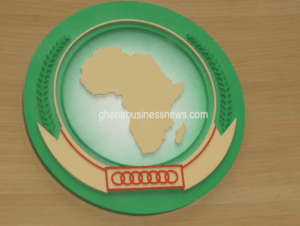AU Executive Council approves Artificial Intelligence Strategy for Africa
 The Executive Council of the African Union Commission has approved an Artificial intelligence (AI) Strategy and Digital Compart for Africa during its 45th Ordinary Session in Accra.
The Executive Council of the African Union Commission has approved an Artificial intelligence (AI) Strategy and Digital Compart for Africa during its 45th Ordinary Session in Accra.
The AI Strategy and Digital Compart provides guidelines on how AI technology would be utilised on the Continent to safeguard the identity, culture and dignity of the African peoples.
The strategy would also aid in fast-tracking socio-economic development in Africa and curb unethical usage of artificial intelligence on the continent.
Dr Abou-Zeid Amani, the AU Commissioner for Infrastructure, Energy and Digitisation, announced this during a news briefing in Accra on Friday at the sidelines of the 45th Ordinary Session of the Executive Council Meeting of the AU.
Dr Amani said the AI Strategy had been forwarded to the United Nations to clearly spell out Africa’s position on the use of AI technology on the continent.
She noted that the AI Strategy for Africa was very necessary to prevent the negative effects and excesses associated with the use of AI technology.
Meanwhile, Ambassador Josepha Sacko, the AU Commissioner for Agriculture, Rural Development, Blue Economy and Sustainable Environment, while briefing journalists on the ‘Outcomes of the African Fertilizer and Soil Health Summit’ emphasised the critical importance of fertilizers and soil health as key components for agricultural productivity in Africa.
“As the Continent’s population continues to grow rapidly, therefore, as policymakers we have to devise the right policies and strategies to address them,” Ambassador Sacko said.
The African Fertilizer and Soil Summit was held in Nairobi, Kenya, from May 7-9, 2024, attended by heads of state, ministers, government officials, development partners and stakeholders from the agriculture, fertilizer and soil sectors.
Three key outcomes emerged from the summit including an adoption of the Nairobi Declaration on African Fertilizer and Soil Health, outlining a 10-year Action Plan.
The meeting also endorsed the Soil Initiative for Africa framework to addressing soil degradation and restoring soil health and commitment to triple domestic production and distribution of certified organic and inorganic fertilizers to reach at least 70 per cent of smallholder farmers by 2030.
Other commitments reached included plans to preserving and reversing land degradation on at least 30% of degraded soils by 2034, as well as fully operationalising the African Fertilizer Financing Mechanism to improve production, procurement and distribution of fertilizers.
Ambassador Sacko emphasised the need for a robust implementation mechanism to ensure those important outcomes were not left unattended to.
“We are already working with our partners to kickstart the implementation process,” she assured.
Source: GNA
